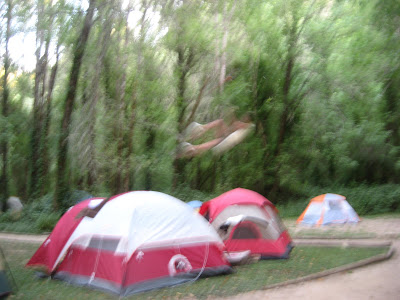and i will.
White House eases stimulus lobbyist restrictions
By Roxana Tiron
Posted: 07/25/09 01:25 PM [ET]
In a significant change, the Obama administration will now allow lobbyists to meet and have telephonic discussions with government officials regarding economic recovery projects.
The lifting of the ban comes after K Street has cried foul for months and has challenged the White House on its restrictions.
In March, President Obama announced that government officials would not be allowed to consider the views of lobbyists regarding specific stimulus projects unless the requests are put in writing. The materials also had to be posted on an agency’s website within three business days of receipt. Lobbyists have said that the policy was one more example of the administration's disdain for their industry.
Now, the just-revised rules will allow government personnel to accept meetings and calls from federally registered lobbyists on the implementation of stimulus projects. The head of the Office of Management and Budget, Peter Orszag, issued a new guidance late Friday regarding the administration's communications with registered lobbyists about economic recovery funds.
Lobbyists can make their cases -- and agency officials can listen to them -- at "widely attended gatherings." Government officials have to ask whether the person they are talking to at such events is a federally registered lobbyist speaking on behalf of a client.
Agency officials are required to promptly disclose on the Internet all oral and written communications with lobbyists concerning policy or projects funded under the recovery act. They also have to disclose any written communications with lobbyists regarding pending applications for competitive funding.
The one caveat, however, is that lobbyists can talk to agency representatives only about logistical issues or general questions regarding stimulus grants. Agency officials have to document any discussion with a lobbyist that veers toward advocacy of stimulus policy or a particular project.
Government officials are still banned from talking to lobbyists representing companies that have already applied for grants and are awaiting a competitive decision. In those cases, agency officials are allowed to accept "oral communication" only if the matter is purely logistical.
Citizens for Responsibility and Ethics in Washington (CREW), the American Civil Liberties Union (ACLU), and the American League of Lobbyists (ALL) joined forced to advocate that the White House revise its rules.
ALL informed its members Saturday morning of the changes.
"Essentially, you will be able to once again meet and have telephonic conversations with personnel in charge of the projects and be able to provide your subject matter expertise to them to help them make the best "merit based" decisions possible for the stimulus projects," Dave Wenhold, the president of ALL, wrote in an e-mail message to members.
"Getting us back to the table and ensuring that we are treated equally has been the main goal for ALL. We are also thankful to our partners in this effort, especially the Citizens for Responsible Ethics in Washington (CREW) and the American Civil Liberties Union (ACLU). Between the main three groups and others, we made a diverse and strong coalition that advocated for these revisions."
there is also the news that my family has just arrived at our favorite beach resort in new hampshire for a week of instant memories and laughter. i will be drinking from one of the resort's cups that i swiped from my aunt all week. it's close, but not close enough.
good night.























